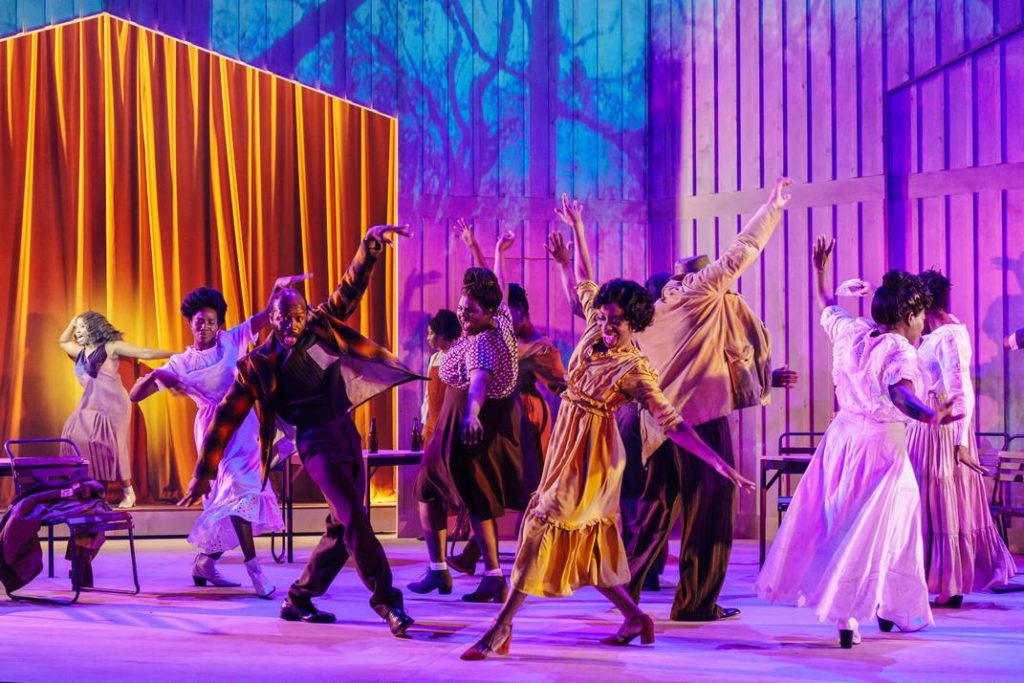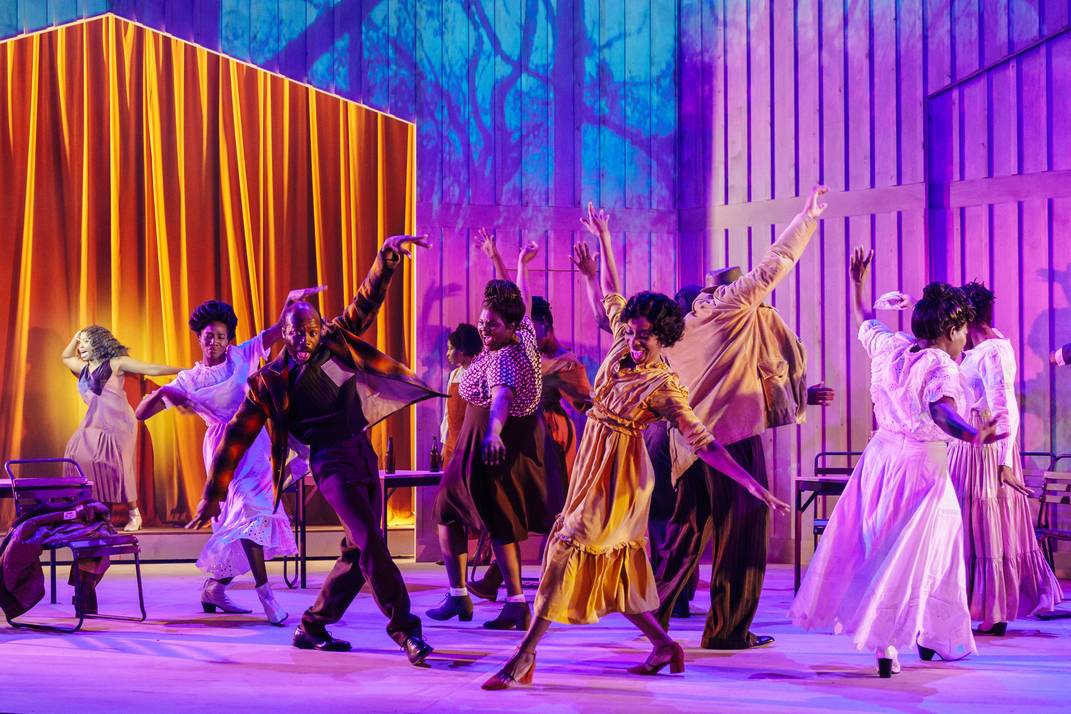
This production of Alice Walker’s The Color Purple, a partnership between Birmingham Hippodrome and Leicester Curve, has a simple formula: award-winning musical plus superb cast equals fantastic show. The logic is almost faultless. What is more, last night’s performance surpassed the formula to give a highly appreciative audience a production that was greater than the sum of its constituent parts. This was a production that really got the audience fired up, animated and often vocally involved.
For those unfamiliar with the story, it is quite an easy narrative to follow. It has tremendous subject matter for heart-rendering drama, though not necessarily what one might expect for a musical: incest, rape, domestic violence, oppression and sexual repression. The beauty of Walker’s Pulitzer Prize winning novel is in how these difficulties are overcome. You do not have to have read the book or seen Steven Spielberg’s Oscar winning film adaptation to keep up with the plot. It is a story set from the early to mid-Twentieth century in Georgia and Tennessee, exploring the experiences of a poor young black woman, Celie, with a dysfunctional background. Played brilliantly by T’Shan Williams, Miss Celie is truly a woman who has been dealt a lousy hand of cards in life. The power of the story is not only how she wins her struggle to survive, but how she does so with magnanimity. In the title role Williams communicates a full range of emotions, acting with panache and empathy in equal measure, and belts out an energy in song that captivates and inspires.
Williams is not the only singing star in this cast. Without exception the cast were as good as I have heard anywhere in a musical, with some of the chorus voices being as ear-catching as the leads. Joanna Francis delivered a warm and resonant portrayal of Shug Avery, at once Miss Celie’s love rival and love interest. Miss Celie’s supportive friend and combative inspiration, Sofia, was played with wonderful comic attitude as well as dynamic vocal power by Karen Mavandukure. The male leads did not let us down either, with strong vocals and acting from Simon-Anthony Rhoden as Harpo and Ako Mitchell as the abusive husband Mister.
The music is unmistakably American, or more accurately Afro-American. The Southern Gospel is as hot and vibrant as anything in Sister Act, and the 1930’s Jazz works its irresistible foot-tapping magic. There is even some distinctly African music, as background to the letters that Celie’s sister Nettie sends as she works away as a missionary. For me, there are no real ‘showstopper’ songs in the musical, but there were some big numbers, of which the ensemble piece “Push Da Button” and Miss Celie’s defiant “I’m Here” were easily the strongest. For the most part though, the music was a narrative vehicle – and generally a fast moving and energetic vehicle at that.
There were some things about the production that didn’t quite work for me. I found the set claustrophobic. There were attempts to use the tall panelled walls as projection screens, with images of wheat fields and orchards, but they served to distract rather than enhance. My other criticism would be that the transitions between scenes were often rather rushed. In a show that lasts over two-and-a-half hours it is easy to see why there is a need to get a hurry on, but there were occasions when I wanted more time to digest the significance of the scenes.
Condensing a novel of such scope into a stage production was always going to be a challenge. Nonetheless, this was an energetic, brilliantly performed and emotional production that fully engaged the audience. Director Tinuke Craig left us reflective of the damaging effects of some enduring social issues, but ultimately, through the experiences and character of Miss Celie, we were also left with hope. ★★★★☆ Robert Gainer 17th July 2019
Photography by Manuel Harlan


